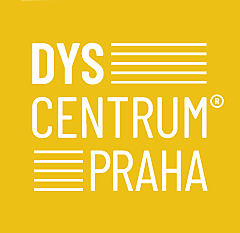Glossary
We have prepared explanations of a few concepts that we often use on our web and that we mainly focus on. If interested, see the glossary below.

Dyslexia
The so-called specific learning difficulty, which is innate; it stems from a different arrangement and functioning of certain areas in the central nervous system. It causes difficulties to read despite good teaching, home training and adequate (sometimes above average) reasoning skills. It is said that people with dyslexia are those who learn differently.
ADHD
Attention deficit hyperactivity disorder is a neurodevelopmental difficulty that is innate and stems from impaired functioning of the central nervous system. People with ADHD have difficulty to focus their attention, they are easily distracted. They also find it difficult to stay focused on their work for long periods of time. If hyperactivity is also present, they show restlessness, an excessive need to move, often accompanied with impulsivity.
Dyscalculia
A specific learning difficulty that negatively affects numeracy skills. Numerical sense and the awareness of digit row are impaired. Basic counting skills are deficient, which is reflected in skills such as time relations or handling money. On the contrary, complex logical reasoning may not pose any difficulty at all.
Visual perception
Ability to distinguish between similar visual symbols and characters, to identify important details, to differential the figure and background, the ability to analyze wholes into parts. As with auditory perception, this is not directly related to sensory perception, but to the information processing on cognitive level.
Auditory perception
Ability to discriminate similar phonemes or other sounds, to identify phonemes in words, to realize how the phonemes change words. It is a cognitive ability to process auditory information, not related to hearing as a sense. Nowadays, we often refer to phonemic awareness when we talk about auditory perception.
Assessment
In our case, we refer to psychological or special education assessment of learning difficulties. We always observe sources of the difficulties and the strengths of our clients. The assessment is an important basis to determine appropriate support for clients. It is the starting point for our further work. The assessment alone will not help much.
